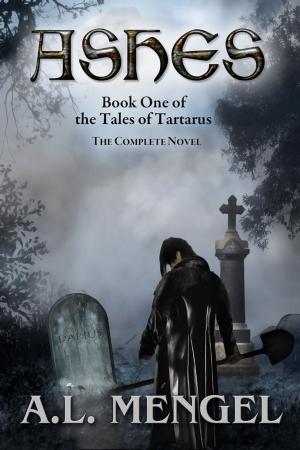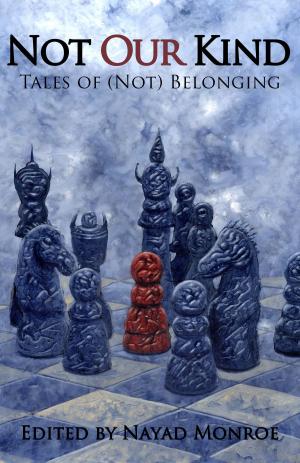| Author: | Lisa G. Samia | ISBN: | 9781943504046 |
| Publisher: | Destiny Whispers Publishing, LLC | Publication: | April 26, 2016 |
| Imprint: | Smashwords Edition | Language: | English |
| Author: | Lisa G. Samia |
| ISBN: | 9781943504046 |
| Publisher: | Destiny Whispers Publishing, LLC |
| Publication: | April 26, 2016 |
| Imprint: | Smashwords Edition |
| Language: | English |
What if a criminal was given a second chance? Romantic fiction no one has dared to imagine, until now. For the handsome Confederate soldier known as John Singer is the notorious assassin, John Wilkes Booth. Surviving the horrific fiery blaze that the world believes ended his life, one man is given a second chance to live, to right the wrongs and find true love.
It is early May, 1865 when John Singer meets Emma Dixon at the war hospital in Alexandria, Virginia, his body is broken, his spirit unwilling to fight as a fever rages within him. But with one smoldering glance from his enigmatic dark eyes, Emma knows he must survive. John’s heart is stolen by her beauty and kindness. She is all that is good in life, honest and caring.
But his true identity becomes his darkest secret. The secret within him burns; turning his past to ashes like the blaze that the world believes took his life. For the handsome and compelling Confederate soldier known as John Singer is the notorious assassin, John Wilkes Booth.
History tells us on April 26, 1865 John Wilkes Booth was cornered and shot at Richard Garrett’s barn at Point Royal, Virginia ….or was he? Rumors and speculation of his escape from the fiery blaze of the barn and the Union gunshot still resonate even today as his legacy. Based on that legendary speculation, it enables one’s imagination to spin with possibilities on a fictional story of desperation, an exodus of repentance and a life hiding in plain sight with an alias as John Singer…or did he?
This fictional account of Booth contains actual historical references and some pertinent civil war situations woven into the fabric of the story. It is fantasy, a “what if” tale. This invented portrayal romanticizes the complicated Booth as a man, yet never forgives the crime he committed. In this imagined legend John Wilkes Booth is repentant for his crime.
SPECIAL LETTER from the Author, Lisa G. Samia:
There are still theories that believe John Wilkes Booth did escape the barn, and that another confederate sympathizer took his place, and there was a government cover-up to that effect. In writing "My Name is John Singer," I relied upon the rumors and legends that still linger today. This is pure speculation. The world will never know. Also, in this fictional account Booth is repentant for the crime he committed, something of course History tells us is not true.
In order for my story to work, I used these theories, writing that John escaped the barn at Garrett’s farm, and was hiding in plain sight in an Alexandria, VA hospital. Or was he? In this adaptation, Booth is repentant for his crime, suffering silently in recounting the actions that led him to the hospital, asking God if it was by some trick of fate he was alive. The uniform he stole from the dead confederate on his flight out to the barn will forever now cause him to be known as John Singer. His family is dead to him, all those who knew and loved him he would never see again; lost forever for the crime he so boldly committed.
Yet the Booth I read about from sister’s Asia’s recollections on their life at Tudor Hall, with his capacity for friendship and love, nagged at me to recreate this man and bring him back to life; all at once repentant and yearning to save his life from the burning desperation within his soul.
A second chance should not be wasted. As John Singer, the devil himself has a chance to rebuild a better life. Question is, would he?
Be that as it may, I am not sure romancing John Wilkes Booth has ever been done. The fine line I walked as an author and most certainly in romanticizing the man was a risk, but never was he forgiven for his heinous crime. He was for me the most compelling of men in history. In this fictional account, I believed there was but one thing that could save him, and that was love. For in the end, isn’t love all we really have?
John Wilkes Booth (May 10, 1838-April 26,1865)
What if a criminal was given a second chance? Romantic fiction no one has dared to imagine, until now. For the handsome Confederate soldier known as John Singer is the notorious assassin, John Wilkes Booth. Surviving the horrific fiery blaze that the world believes ended his life, one man is given a second chance to live, to right the wrongs and find true love.
It is early May, 1865 when John Singer meets Emma Dixon at the war hospital in Alexandria, Virginia, his body is broken, his spirit unwilling to fight as a fever rages within him. But with one smoldering glance from his enigmatic dark eyes, Emma knows he must survive. John’s heart is stolen by her beauty and kindness. She is all that is good in life, honest and caring.
But his true identity becomes his darkest secret. The secret within him burns; turning his past to ashes like the blaze that the world believes took his life. For the handsome and compelling Confederate soldier known as John Singer is the notorious assassin, John Wilkes Booth.
History tells us on April 26, 1865 John Wilkes Booth was cornered and shot at Richard Garrett’s barn at Point Royal, Virginia ….or was he? Rumors and speculation of his escape from the fiery blaze of the barn and the Union gunshot still resonate even today as his legacy. Based on that legendary speculation, it enables one’s imagination to spin with possibilities on a fictional story of desperation, an exodus of repentance and a life hiding in plain sight with an alias as John Singer…or did he?
This fictional account of Booth contains actual historical references and some pertinent civil war situations woven into the fabric of the story. It is fantasy, a “what if” tale. This invented portrayal romanticizes the complicated Booth as a man, yet never forgives the crime he committed. In this imagined legend John Wilkes Booth is repentant for his crime.
SPECIAL LETTER from the Author, Lisa G. Samia:
There are still theories that believe John Wilkes Booth did escape the barn, and that another confederate sympathizer took his place, and there was a government cover-up to that effect. In writing "My Name is John Singer," I relied upon the rumors and legends that still linger today. This is pure speculation. The world will never know. Also, in this fictional account Booth is repentant for the crime he committed, something of course History tells us is not true.
In order for my story to work, I used these theories, writing that John escaped the barn at Garrett’s farm, and was hiding in plain sight in an Alexandria, VA hospital. Or was he? In this adaptation, Booth is repentant for his crime, suffering silently in recounting the actions that led him to the hospital, asking God if it was by some trick of fate he was alive. The uniform he stole from the dead confederate on his flight out to the barn will forever now cause him to be known as John Singer. His family is dead to him, all those who knew and loved him he would never see again; lost forever for the crime he so boldly committed.
Yet the Booth I read about from sister’s Asia’s recollections on their life at Tudor Hall, with his capacity for friendship and love, nagged at me to recreate this man and bring him back to life; all at once repentant and yearning to save his life from the burning desperation within his soul.
A second chance should not be wasted. As John Singer, the devil himself has a chance to rebuild a better life. Question is, would he?
Be that as it may, I am not sure romancing John Wilkes Booth has ever been done. The fine line I walked as an author and most certainly in romanticizing the man was a risk, but never was he forgiven for his heinous crime. He was for me the most compelling of men in history. In this fictional account, I believed there was but one thing that could save him, and that was love. For in the end, isn’t love all we really have?
John Wilkes Booth (May 10, 1838-April 26,1865)















